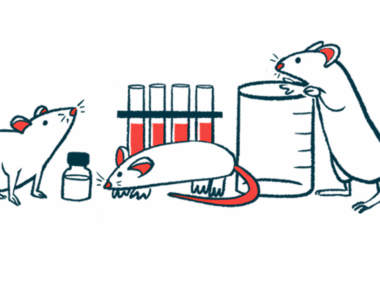Anew Medical to advance development of Klotho gene therapy
Clinical trials, diagnostics, age-related disorders are focus areas
Written by |

Anew Medical said it will advance clinical development of its Klotho gene therapy program to prevent or stop the progression of neurodegenerative diseases, including Parkinson’s disease.
Initial data suggest that maintaining high levels of the Klotho protein in the body may help people live longer and healthier lives, while individuals with lower levels of the protein are more susceptible to neurodegenerative diseases, the company said.
The company has been granted patents for the program in Europe, China, and Hong Kong, and awaits patent issuance in the U.S. and Canada. The program includes the development of therapies to deliver the Klotho gene to neurons (nerve cells) in the central nervous system (the brain and spinal cord) that could advance to clinical trials, as well as the development and commercialization of a diagnostic tool to quantify Klotho gene and protein levels in blood samples.
“Research by our strategic partner, the Okinawa Research Center for Longevity Science (ORCLS) in Japan, suggests that the Klotho gene is a key factor in age-related longevity,” Joseph Sinkule, Anew Medical’s founder and CEO, said in a company press release. “Klotho emerged as one of the two most significant genes from their studies, and we look forward to continuing our research with ORCLS as we advance Anew’s clinical development programs for neurodegenerative disorders.”
Neurodegenerative diseases, including Parkinson’s, Alzheimer’s disease, and amyotrophic lateral sclerosis (ALS), are caused by the degeneration and loss of specific types of neurons in the central nervous system.
Targeting loss of neurons
In Parkinson’s, there is a selective loss of neurons responsible for producing dopamine, a crucial neurotransmitter involved in movement control. This progressive loss of dopaminergic neurons leads to the characteristic motor symptoms associated with the condition.
Klotho is a protein present in two forms in humans: a membrane-bound form and a circulating, soluble form called secreted Klotho (s-KL) that functions as a hormone. Research indicates Klotho levels decrease with age, notably in the brains of individuals affected by neurodegenerative disorders.
Mice who lack the Klotho gene begin to show early signs of aging, including loss of cognition, neuron degeneration, cardiovascular and lung problems, and loss of bone density (osteoporosis). These animals also have a shorter-than-normal lifespan.
Preclinical studies have shown that s-KL can prevent the death of neurons subjected to toxic conditions in the lab. A new gene construct to increase Klotho levels has shown efficacy in animal models of Parkinson’s.
“Therapeutic approaches at increasing Klotho protein levels … might prevent neuronal degeneration if treatment is started at the beginning of disease,” the company says on its website.
Anew will develop gene therapies to treat neurodegenerative diseases and age-related disorders, using harmless adeno-associated virus (AAV) to deliver the s-KL gene sequence to CNS neurons. This approach aims to correct s-KL deficiencies by increasing its protein levels and is expected to be used in future clinical studies.
The company also plans to develop and commercialize a diagnostic test to accurately measure Klotho gene and protein levels in human blood samples, which would help screen patients for future clinical trials, and to develop Klotho gene- or cell-based therapies to increase longevity in healthy people and to treat age-related disorders including memory loss, muscle wasting, osteoporosis, diabetes mellitus, and cardiovascular conditions.
“Anew is in a strong position to significantly influence the treatment of ALS, Alzheimer’s, and other neurodegenerative disorders,” said Shalom Hirshman, MD, a founder and director of the company and its chief medical officer emeritus. “With our patent-protected gene therapy platform technology, we have the potential to improve health and extend life expectancy.”



